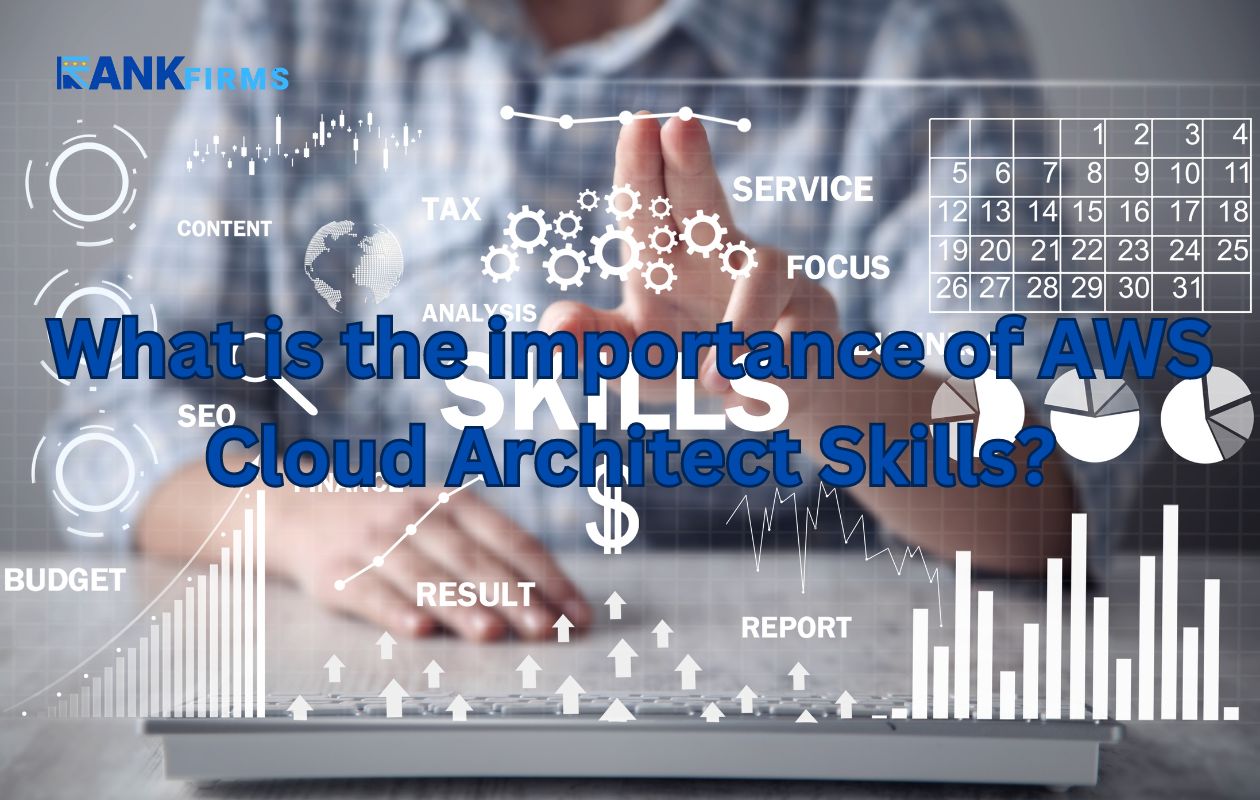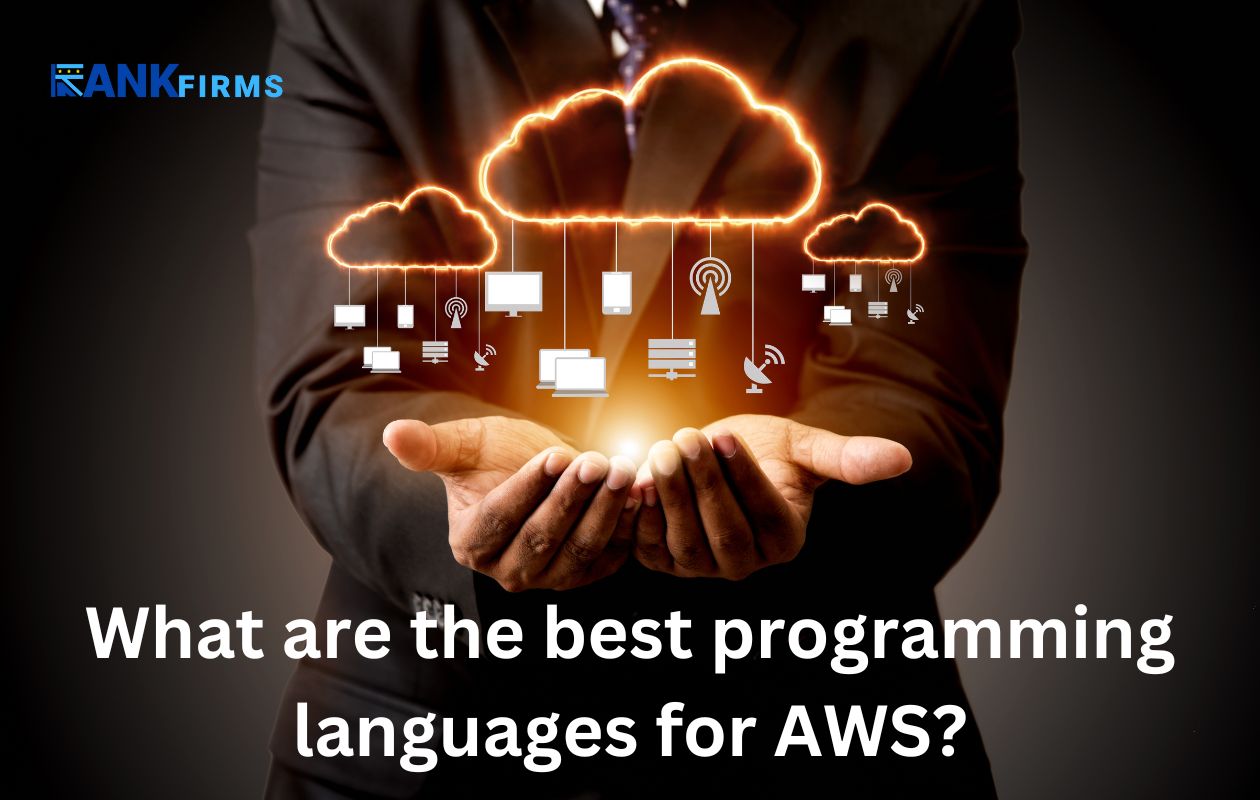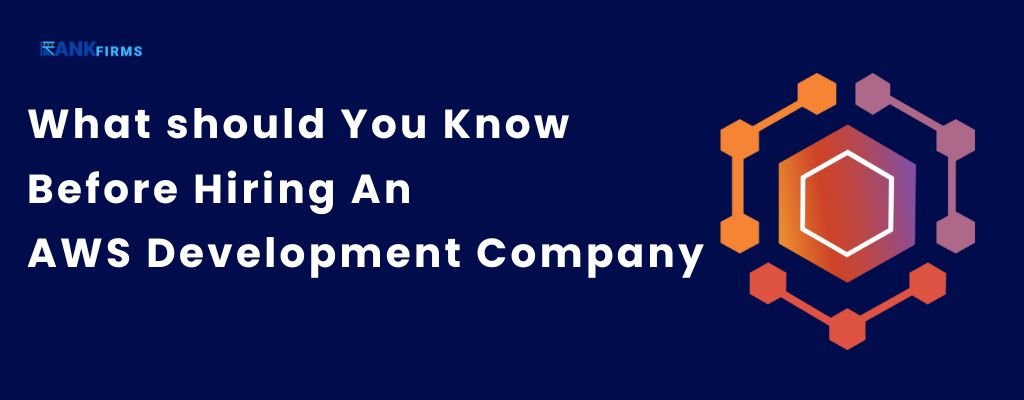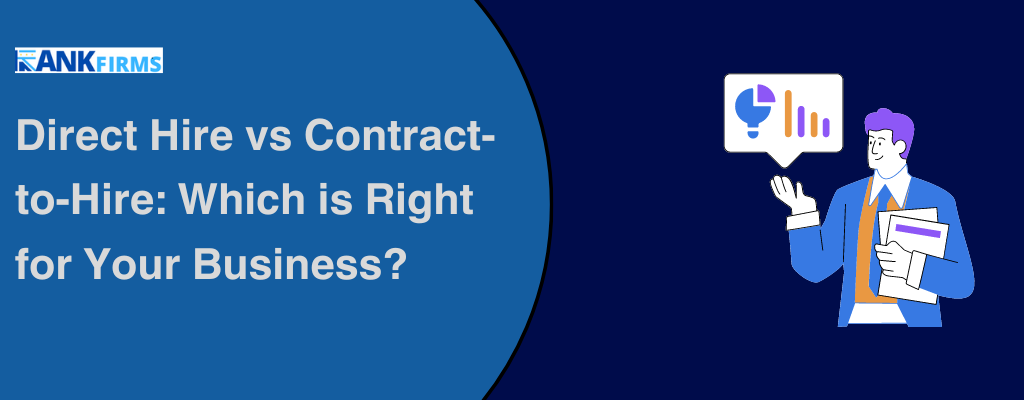AWS, a comprehensive cloud computing platform provided by the giant Amazon, have huge capabilities and resources. Amazon Web Services offers on-demand services that allow mobile app development companies to build, deploy and manage applications in the cloud seamlessly. Its capabilities are well explained with these statistics below:
As per Synergy Research Group, AWS remains the leader in the cloud infrastructure market, holding a 31% market share in Q1 2024. However, Microsoft Azure is steadily gaining ground with a 25% share.
Additionally, a report by UBS estimates that AWS enjoys a customer retention rate exceeding 90%, indicating high customer satisfaction with its services.
Despite facing increased competition, AWS continues to experience significant revenue growth. In Q4 2023, AWS reported a revenue run rate exceeding $100 billion, indicating annualized revenue surpassing that milestone. (Source: CNBC)
AWS boasts millions of active users across the globe, ranging from small startups to large enterprises. This extensive user base signifies the platform’s broad appeal and diverse use cases. Various industries leverage AWS for cloud computing needs, including healthcare, finance, education, media & entertainment, and software development companies. This highlights the platform’s versatility and ability to cater to diverse requirements.
A significant portion of AWS revenue is reinvested into research and development, driving continuous innovation to new services. Here is a closer look at what you get from AWS:
1. Infrastructure on Demand:
Virtual Servers (EC2):
Spin the virtual servers in minutes with AWS, eliminating the need to purchase and maintain physical hardware. Additionally, you can scale your server capacity up or down effortlessly based on fluctuating traffic or processing needs.
Storage (S3, EBS, etc.):
Securely store all sorts of data – from application code to media files – in the cloud with scalable storage options. This frees you from managing physical storage limitations.
Databases (RDS, DynamoDB, etc.):
You can choose from multiple database options suited to your needs. Run high-performance relational databases or leverage NoSQL solutions for scalable applications, all managed by AWS.
2. Enhanced Agility and Scalability:
Effortless Scaling:
Respond to changes in demand by scaling your resources up or down with ease. AWS eliminates the struggle with inflexible on-premises infrastructure allowing you to replace them with cloud infrastructure.
Focus on Innovation:
You can offload and continue to work with AWS which allows you to dedicate your resources to developing and innovating your applications.
Global Reach:
Deploy your applications in data centres anywhere with AWS. This cloud computing system brings your services closer to your users for improved performance and lower latency.
3. Cost-Effectiveness and Efficiency:
Pay-As-You-Go Model:
No more upfront costs tensions, AWS’s flexible services allow the user to pay only for those services they wish. This translates to significant cost savings.
Reduced Management Overhead:
AWS manages the underlying infrastructure, freeing your IT team from time-consuming maintenance tasks.
Improved Resource Utilization:
AWS lets you optimise resource usage with auto-scaling features that ensure you’re not paying for idle resources.
4. Increased Security and Reliability:
Robust Security Features:
AWS prioritises security with features like encryption, access controls, and compliance certifications to safeguard your data and applications.
Disaster Recovery:
AWS offers built-in disaster recovery functionalities, ensuring your applications remain available during unforeseen disruptions.
Focus on Core Business:
With AWS managing the security and reliability of your infrastructure, you can focus on your core business functions with greater peace of mind.
5. Broad Functionality and Innovation:
Machine Learning (SageMaker):
AWS simplifies building, training, and deploying machine learning models in the cloud by unlocking new data analysis and insights into new opportunities.
Internet of Things (IoT Core):
AWS lets you connect your devices to the cloud and manage them remotely, enabling innovative IoT applications.
Analytics (Redshift, Kinesis):
You can leverage the powerful analytics services of AWS to gain insights from your data, leading to better decision-making.
Ever-Expanding Ecosystem:
AWS constantly rolls out new services, keeping pace with technological advancements and offering solutions for diverse industry needs.
What Are The Services Offered By AWS?
Compute:
Services like Amazon EC2 (Elastic Compute Cloud) provide virtual servers in the cloud, allowing you to run any application without managing physical hardware.
Storage:
Services like Amazon S3 (Simple Storage Service) offer secure and scalable storage for various data types, from application data to media files.
Database:
AWS provides multiple database services like Amazon Aurora (a high-performance relational database) and Amazon DynamoDB (a NoSQL database for scalable applications).
Networking & Content Delivery:
Services like Amazon VPC (Virtual Private Cloud) allow you to create secure and isolated network environments within the AWS cloud. Additionally, Amazon CloudFront helps deliver content to users with low latency.
Analytics:
AWS offers a suite of analytics services like Amazon Redshift (a data warehouse) and Amazon Kinesis (for real-time data streaming) to analyse and gain insights from your data.
Machine Learning (ML):
Amazon SageMaker and other services simplify the process of building, training, and deploying machine learning models in the cloud.
Security, Identity, & Compliance:
AWS provides robust security features to safeguard your data and applications. You also get services for managing user access and ensuring compliance with various regulations.
Internet of Things (IoT):
AWS offers services like AWS IoT Core to connect devices to the cloud and manage them remotely.
Many More:
The list goes beyond these core categories. AWS offers a vast ecosystem of services catering to various functionalities and industry-specific needs.
If you want to develop similar software with such capabilities for your business, you must hire a reliable and experienced AWS expert. A reliable partner can assist you throughout the development as well as after development to ensure that you leverage the utmost benefit of it. However, before you jump to the conclusion of selecting a partner, a few things you must know and this article will help you find the perfect partner to cater to your AWS solution/services.
Also Read: Top 10 FAQ before hiring software development company
Question You Should Ask An AWS Development Expert
What services as AWS do you offer?
An experienced and well-established company with expert data scientists and developers would explain themselves:
We offer a comprehensive range of AWS development services to help you leverage the power of the cloud for your projects. Here are some of our core competencies:
Cloud Architecture Design:
We design secure, scalable, and cost-effective cloud architectures on AWS that align with your specific needs.
Application Development and Deployment:
We develop and deploy applications on AWS using various services like EC2, S3, Lambda, and containerization technologies like ECS or EKS.
Migration to AWS:
We assist with migrating your on-premises applications to the AWS cloud, ensuring a smooth and efficient transition.
DevOps and Automation:
We implement DevOps practices and automation tools to streamline your development and deployment processes on AWS.
Management and Optimization:
We provide ongoing management and optimization of your AWS infrastructure, ensuring peak performance and cost efficiency.
Security & Compliance:
We prioritize security by implementing best practices, leveraging AWS security features, and ensuring compliance with relevant regulations.
We can tailor our services to your specific requirements, whether you need assistance with a single aspect of your project or a comprehensive end-to-end solution.
Are you aware of both Windows EC2 instances and Linux EC2 instances?
If the company is well-versed in cloud computing instances, they would answer:
Absolutely! We are well-versed in both Windows and Linux EC2 instances. We can help you choose the right instance type based on your application’s requirements. Here’s a quick breakdown:
Windows EC2:
Ideal for applications built on the Windows Server operating system or requiring .NET framework support.
Linux EC2:
A popular choice for various applications due to its open-source nature, wider range of software compatibility, and cost-effectiveness in many cases.
We consider factors like application dependencies, licensing costs, and your team’s expertise when recommending the most suitable EC2 instance type for your project.
How would you choose between a spot instance and an on-demand instance to work with GameLift?
When choosing between Spot and On-Demand instances for GameLift, we prioritise a balance between cost and performance:
Spot Instances:
Offer significant cost savings compared to On-Demand instances. However, they come with the risk of interruption if the spot price exceeds your bid or AWS reclaims the resources.
On-Demand Instances:
Provide consistent performance and availability, ideal for critical game servers where downtime isn’t an option.
For GameLift, we might recommend a hybrid approach:
On-Demand Instances:
Allocate a core set of On-Demand instances for guaranteed baseline server capacity.
Spot Instances:
Utilize Spot Fleets to supplement your On-Demand instances during peak usage periods, potentially reducing costs.
We’ll carefully analyze your specific needs and GameLift configuration to determine the optimal instance type and pricing model.
Can you create a Virtual Private Network using AWS?
AWS Consulting companies would provide a VPN for private communication as demanded by the customer:
Yes, we can definitely help you create a Virtual Private Network (VPN) using AWS services like:
Amazon VPC (Virtual Private Cloud):
This service allows you to create a logically isolated network environment within the AWS cloud.
VPN Gateway:
This service connects your VPC to your on-premises network or other VPCs securely over the internet.
We can configure secure and scalable VPN connections to establish private communication channels between your cloud infrastructure and on-premises resources.
Can you share any problems that you solved through AWS?
The AWS development company would happily share their projects including client references and reviews to ensure reliability and build trust. They would share a challenge they received and a solution they were able to provide:
Challenge:
A gaming company struggled with managing peak loads during new game launches, leading to server downtime and frustrated players.
Solution:
We migrated their game servers to AWS and implemented a combination of Auto Scaling with On-Demand and Spot Instances for GameLift. This allowed the infrastructure to automatically scale up during peak periods and down during low traffic times, ensuring smooth gameplay and significant cost savings.
What is the importance of AWS Cloud Architect Skills?

In today’s cloud-driven world, having a skilled AWS Cloud Architect on your development team is no longer a luxury, it’s a strategic advantage. Here’s why AWS Cloud Architect skills are crucial for our company and your project’s success:
Optimizing Your Cloud Journey:
Cost Efficiency:
A skilled Cloud Architect designs cost-effective solutions by selecting the right AWS services, leveraging features like Reserved Instances and Spot Fleets, and continuously optimizing resource utilization. This translates to significant cost savings for your business.
Scalability and Performance:
Cloud Architects create architectures that can seamlessly scale up or down based on your needs. This ensures your applications perform optimally during peak traffic periods and avoid costly over-provisioning during low usage times.
Security and Reliability:
Security is paramount. Cloud Architects implement robust security best practices, leverage AWS security features, and configure access controls to safeguard your data and applications, ensuring a reliable and secure cloud environment.
Beyond Infrastructure Management:
Solution Design and Planning:
Cloud Architects go beyond simply provisioning resources. They collaborate with stakeholders to understand your business goals and design cloud solutions that align perfectly with your needs. This ensures your AWS infrastructure supports your application architecture and drives business value.
Future-Proofing Your Infrastructure:
The cloud landscape is constantly evolving. Cloud Architects stay updated on the latest AWS services and technologies, ensuring your infrastructure is built to adapt and leverage future advancements.
Collaboration and Communication:
Bridging the Gap:
Cloud Architects act as a bridge between business needs and technical implementation. They translate your vision into a technical roadmap, communicate complex technical concepts clearly, and ensure all stakeholders are aligned throughout the development process.
Benefits for Your Development Project:
By having a skilled AWS Cloud Architect on board, you can expect:
Reduced Risks:
Mitigate the risks associated with cloud migration or application development by leveraging the expertise of a certified professional.
Faster Time to Market:
Cloud Architects optimize your cloud environment, allowing for faster development cycles and quicker deployment of your applications.
Improved Team Efficiency:
The architect handles the heavy lifting of infrastructure design and management, freeing your development team to focus on core application functionalities.
What are the key aspects of AWS?

Building a Strong Foundation: Networking
Imagine your applications like different departments in a company. Networking in AWS is like creating a secure communication network within your cloud environment. We design and manage virtual offices (VPCs) and secure pathways (firewalls) so your applications can talk to each other and access external resources efficiently. This ensures smooth operation and optimal performance.
Your Data’s Safe Haven: Data Storage Fundamentals
Data is the lifeblood of your applications. We understand the different storage options on AWS – object storage (S3) is like a giant filing cabinet for anything from photos to code, while block storage (EBS) is like a dedicated hard drive for your virtual machines. We choose the right storage solution based on your data’s needs, ensuring it’s secure, readily available, and cost-effective.
Security: Our Top Priority
Security is non-negotiable in the cloud. We have a strong understanding of security best practices like encryption (data scrambling) and access control (who can access what). We leverage features like IAM (Identity and Access Management) to ensure only authorized users can access your data, keeping your applications and information safe.
Cloud-Specific Technologies: Building for the Future
The cloud offers unique tools to build modern applications. We are experts in cloud-specific patterns like serverless computing (think tasks running on-demand without managing servers) and containerization (packaging applications for easy deployment across environments). These technologies allow us to build highly scalable and cost-effective solutions that can adapt to your changing needs.
Virtualization: Optimizing Resources
Imagine running multiple businesses in a single office building – that’s the power of virtualization. AWS uses virtualization to create virtual machines (VMs) that share a physical server’s resources. This allows us to efficiently manage resources, create isolated development environments for testing, and scale your applications effectively as your business grows.
What are the best programming languages for AWS?

There isn’t a single “best” programming language for AWS development, but several strong contenders excel in different areas. Here’s a breakdown the different languages that most cloud consulting companies would choose for your project:
Top Choices for AWS Development:
Python:
A popular and versatile language, well-suited for various development tasks on AWS. It boasts extensive libraries for:
- Web development (Django, Flask)
- Data science and machine learning (NumPy, Pandas, TensorFlow)
- Scripting and automation (Boto3 – AWS SDK for Python)
- DevOps and infrastructure management (Ansible) Python’s ease of learning and readability make it a great choice for beginners and experienced developers alike.
Java:
A mature and widely adopted language, known for its scalability and enterprise-grade features. Java is a solid option for building complex, distributed applications on AWS that require high performance and reliability. Popular frameworks for AWS development with Java include:
- Spring Boot (microservices architecture)
- AWS SDK for Java
JavaScript (Node.js):
JavaScript with Node.js excels in building serverless applications and microservices on AWS Lambda. Its event-driven nature and asynchronous programming capabilities make it ideal for real-time applications and APIs. Frameworks like:
- Express.js (web application framework)
- Serverless Framework (streamline serverless development)
- AWS SDK for JavaScript
C#:
A powerful language often associated with .NET development. With the rise of .NET Core, C# shines in building scalable cloud-native applications on AWS. Popular frameworks for AWS development with C# include:
- ASP.NET Core (web application framework)
- AWS SDK for .NET
Other Languages to Consider:
Go:
Gaining traction for its speed, simplicity, and concurrency features. Go is a good choice for building highly scalable and performant backend services on AWS. It has a growing ecosystem of libraries and tools for cloud development. (AWS SDK for Go)
PHP:
A mature language often associated with web development. While not the most modern choice, PHP can be a good fit for migrating existing web applications to AWS or building new ones using frameworks like:
- Laravel (full-stack web application framework)
- AWS SDK for PHP
Also Read: How to choose Right Software Development company?
What are the main features of AWS Cloud computing?
AWS Cloud computing offers a comprehensive suite of features that empower businesses to build, deploy, and manage applications in the cloud. Here’s a breakdown of some key functionalities:
Infrastructure as a Service (IaaS):
Virtual Servers (EC2):
Provision and manage virtual servers in the cloud, eliminating the need for physical hardware. Scale your server capacity up or down effortlessly based on your needs.
Storage (S3, EBS, etc.):
Store all sorts of data – from application code to media files – securely in the cloud with scalable storage options. This frees you from managing physical storage limitations.
Networking & Content Delivery (VPC, CloudFront):
Create secure and isolated network environments within the AWS cloud (VPC) and deliver content to users with low latency globally using CloudFront.
Platform as a Service (PaaS):
Compute Services (Lambda):
Run code without managing servers using serverless computing. This allows you to focus on developing functionalities without worrying about infrastructure.
Databases (RDS, DynamoDB):
Choose from a variety of managed database options suited to your specific needs. Run high-performance relational databases or leverage NoSQL solutions for scalable applications.
Development Tools (CodeDeploy, CodePipeline):
Automate your application deployment and continuous integration/continuous delivery (CI/CD) pipeline with various AWS development tools.
Software as a Service (SaaS):
Management Tools (CloudWatch):
Monitor and manage your entire AWS infrastructure with comprehensive tools for performance insights, logging, and optimization.
Security & Identity (IAM):
Implement robust security measures with features like encryption, access controls (IAM), and compliance certifications to safeguard your data and applications.
Management Services (CloudFormation):
Automate infrastructure provisioning and configuration using templates, ensuring consistency and repeatability in your cloud environment.
Additional Features:
Machine Learning (SageMaker):
Simplify building, training, and deploying machine learning models in the cloud, unlocking new possibilities for data analysis and insights.
Internet of Things (IoT Core):
Connect your devices to the cloud and manage them remotely, enabling innovative IoT applications.
Analytics (Redshift, Kinesis):
Utilize powerful analytics services to gain insights from your data, leading to better decision-making.
Emerging Technologies:
AWS is constantly innovating and introducing new services to keep pace with technological advancements.
How strictly and rigorously do you interview Cloud developers and what do you consider when hiring them?
Our interview process for Cloud Developers strikes a balance between assessing technical skills and cultural fit. Here’s a breakdown of what you can expect:
Technical Assessment:
Hands-on Coding Challenge:
We might present a real-world scenario or a coding problem relevant to AWS development. This assesses your ability to code, solve problems, and think critically.
In-depth AWS Knowledge:
We’ll delve into your understanding of core AWS services like EC2, S3, Lambda, and IAM, and your experience with specific functionalities like security best practices, autoscaling, or serverless architectures. We might use situational questions to gauge your problem-solving approach within the AWS environment.
Cloud-Specific Technologies:
Depending on the role’s requirements, we might assess your knowledge of specific technologies like containerization (ECS, EKS), serverless development frameworks, or experience with scripting languages like Python (Boto3) for interacting with AWS services.
Rigor of the Interview:
The difficulty level of the interview is tailored to the specific role and seniority level. For entry-level positions, we might focus more on foundational AWS knowledge and problem-solving skills. For senior positions, we might have more in-depth discussions about specific AWS services, architectures, and best practices.
By combining a thorough technical assessment with an evaluation of cultural fit, we aim to identify skilled and passionate Cloud Developers who can seamlessly integrate into our team and contribute to building exceptional solutions on AWS.
Looking Ahead:
Focus on Hybrid and Multi-Cloud Solutions:
As businesses increasingly adopt hybrid and multi-cloud strategies, AWS is expected to focus on solutions that seamlessly integrate with on-premises infrastructure and other cloud platforms.
Emphasis on Security and Compliance:
With data security remaining a top concern, AWS is likely to prioritize even more robust security features and compliance certifications to address evolving regulations and user demands.
Continued Innovation in AI and Machine Learning:
We can expect AWS to further invest in artificial intelligence (AI) and machine learning (ML) services, empowering users with advanced data analysis capabilities and automation possibilities.






